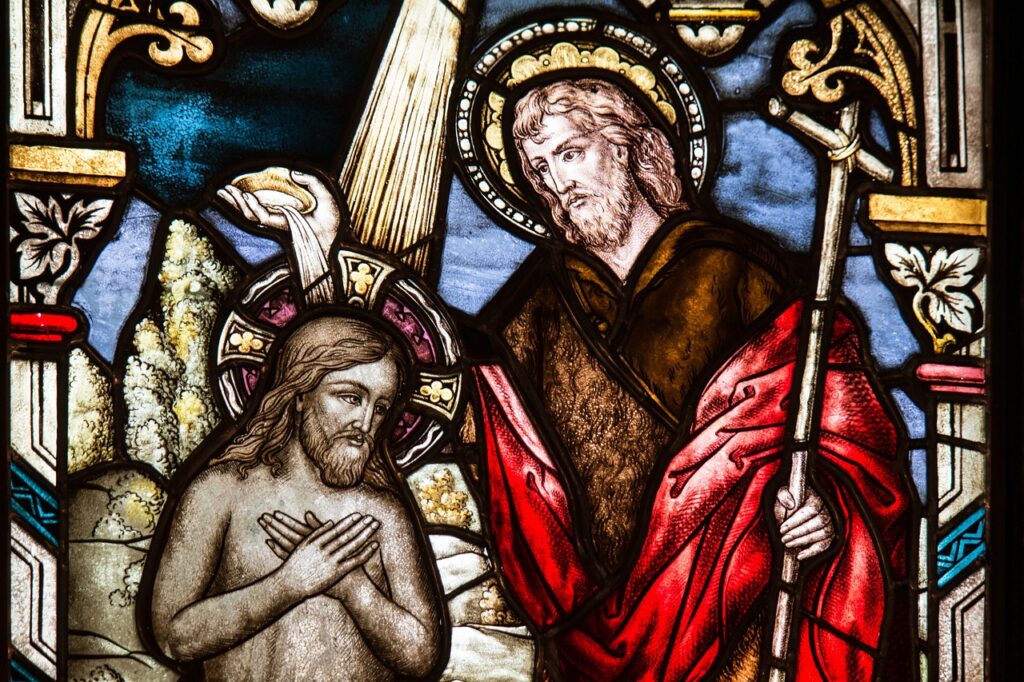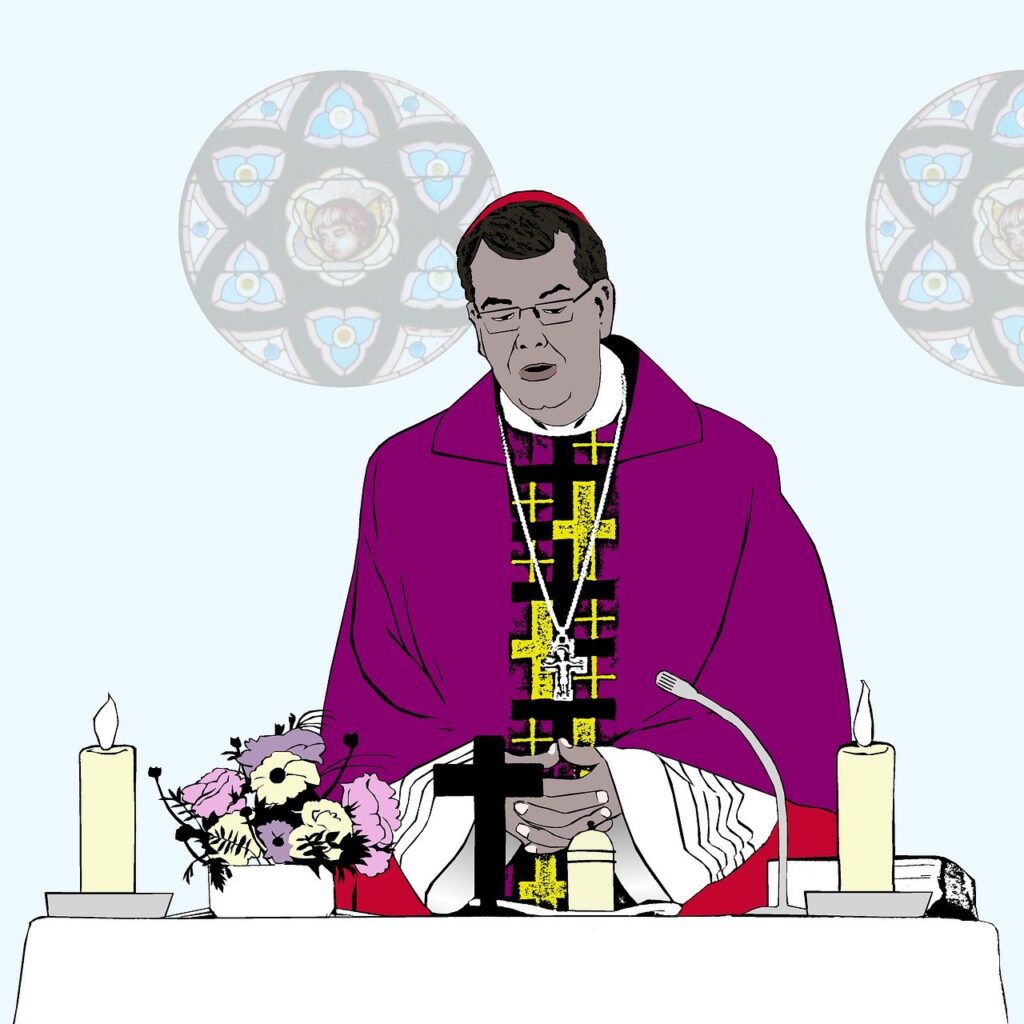
Eternal security, often referred to as “once saved, always saved,” is a topic of significant debate among different Christian denominations. This article explores the beliefs various groups hold about eternal security, examining theological perspectives, scriptural interpretations, and the implications for believers.
Understanding Eternal Security
Eternal security is the doctrine that once a person is truly saved, they cannot lose their salvation. This belief provides comfort to many Christians, assuring them that their status as saved individuals is secure regardless of their future actions. However, interpretations of this doctrine vary significantly across denominations, leading to diverse beliefs and practices within the Christian faith.
At its core, eternal security hinges on the understanding of salvation, grace, and the nature of God. Different denominations interpret scripture and theology in unique ways, shaping their stance on whether a believer can fall from grace after genuinely accepting Christ.
Baptists and Eternal Security

The Baptist denomination largely supports the doctrine of eternal security. Most Baptists believe that once a person is genuinely saved, they cannot lose their salvation. This belief is rooted in verses such as John 10:28-29, where Jesus states that no one can snatch His followers out of His hand. Baptists emphasize that salvation is a gift from God, and since it is not earned by human effort, it cannot be lost through human failure.
However, there are variations within the Baptist community. Some Baptists, particularly those from the Reformed tradition, hold a more nuanced view, suggesting that true salvation will inevitably produce good works. They argue that if a person falls away from faith, it may indicate that they were never truly saved in the first place. This distinction emphasizes the importance of a transformed life as evidence of genuine faith.
Methodists and the Possibility of Falling from Grace
In contrast to Baptists, Methodists generally believe in the possibility of falling from grace. This belief stems from the teachings of John Wesley, the founder of Methodism, who emphasized the importance of personal holiness and perseverance in faith. Methodists hold that while salvation is a gift from God, believers must actively maintain their relationship with God through faith and obedience.
Scripture passages such as Hebrews 6:4-6 and 2 Peter 2:20-22 are often cited to support the idea that a true believer can turn away from their faith and lose their salvation. Methodists encourage believers to remain vigilant in their spiritual lives and to seek a deeper relationship with Christ to avoid falling away.
Presbyterians and the Doctrine of Perseverance

Presbyterians, particularly those from the Reformed tradition, believe in the doctrine of perseverance of the saints. This doctrine asserts that true believers will persevere in faith and good works until the end of their lives. While they affirm the security of salvation, they also emphasize that those who are genuinely saved will exhibit a life of faithfulness and obedience.
Presbyterians argue that God’s grace is irresistible and that those whom God has chosen for salvation will not ultimately fall away. They reference passages such as Romans 8:30, which speaks of God’s plan for believers being fulfilled from beginning to end. This belief encourages Presbyterians to remain steadfast in their faith, trusting in God’s promises for their salvation.
Catholics and the Importance of Free Will
The Catholic Church teaches a more complex understanding of salvation and eternal security. Catholics believe that salvation is a continuous process involving faith, good works, and the sacraments. While they affirm that God’s grace is essential for salvation, they also emphasize the role of human free will in accepting or rejecting that grace.
Catholics hold that it is possible for a person to lose their salvation through mortal sin, which is a serious offense against God. However, they also believe in the possibility of repentance and reconciliation through the sacrament of confession. This view underscores the importance of ongoing faith and moral living in the Catholic tradition.
Eastern Orthodox Perspective on Salvation

The Eastern Orthodox Church has a unique perspective on salvation and eternal security. They emphasize the transformative nature of salvation as a process of theosis, or becoming one with God. Orthodox theology teaches that salvation is not a one-time event but a lifelong journey of growing closer to God through faith, prayer, and participation in the sacraments.
In this framework, the concept of eternal security is less about a guarantee of salvation and more about the believer’s ongoing relationship with God. Orthodox Christians believe that while God’s grace is always available, individuals must actively participate in their salvation journey. Falling away from faith is possible, but so is repentance and return to God’s grace.
Charismatic and Pentecostal Views on Eternal Security
Charismatic and Pentecostal denominations often emphasize personal experience and the work of the Holy Spirit in the believer’s life. Many within these traditions lean towards the belief in eternal security, arguing that once a person experiences the genuine infilling of the Holy Spirit, they are secure in their salvation.
However, some groups within the Charismatic and Pentecostal movements caution against complacency. They teach that a believer can drift away from faith, especially if they neglect their spiritual growth or indulge in sin. This perspective encourages believers to remain active in their faith, continually seeking a deeper relationship with God to ensure their eternal security.
Lutherans and the Assurance of Salvation

Lutherans generally affirm the doctrine of eternal security, emphasizing salvation by grace through faith alone. They believe that once a person has received God’s grace, it is not dependent on human actions or merits. Lutheran theology teaches that salvation is a gift that cannot be earned or lost through human failure.
However, Lutherans also affirm that believers must continue in faith and good works as a response to God’s grace. They caution against complacency and emphasize the importance of ongoing faith in Christ. This belief in the assurance of salvation encourages Lutherans to live in gratitude and obedience, reflecting their faith in their daily lives.
Conclusion
The belief in eternal security varies significantly among Christian denominations, reflecting diverse theological perspectives and interpretations of scripture. While some groups, such as Baptists and many Lutherans, affirm the idea that once a person is saved, they cannot lose their salvation, others, like Methodists and Catholics, emphasize the importance of ongoing faith and the possibility of falling away.
Ultimately, the discussion around eternal security highlights the broader themes of grace, free will, and the nature of salvation within the Christian faith. Regardless of differing beliefs, most denominations agree on the importance of a personal relationship with God and the transformative power of faith in Christ. Understanding these varied perspectives can foster greater appreciation for the rich tapestry of Christian thought and encourage believers to engage in meaningful dialogue about their faith.
FAQs
1. What is eternal security?
Eternal security refers to the belief that once a person is truly saved, they cannot lose their salvation. It provides assurance to believers about their eternal status with God.
2. Can a believer lose their salvation according to the different denominations?
It depends on the denomination. Baptists and many Lutherans believe in eternal security, while Methodists and Catholics teach that a believer can fall from grace through sin.
3. What role does free will play in salvation?
Free will is significant in denominations like Catholicism and Eastern Orthodoxy, emphasizing that individuals can choose to accept or reject God’s grace.
4. How do different denominations interpret scripture regarding eternal security?
Different denominations focus on various biblical passages to support their beliefs about eternal security, leading to differing interpretations and theological conclusions.
5. Why is the discussion of eternal security important for Christians?
This discussion is significant because it affects how believers understand their relationship with God, their assurance of salvation, and how they live out their faith in daily life.






